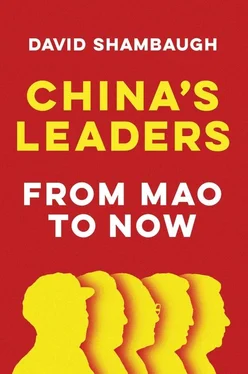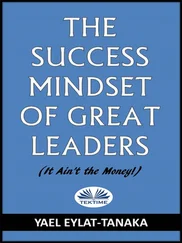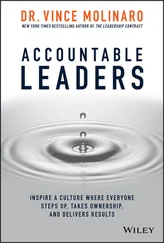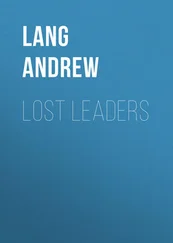I am also indebted to the great team at Polity Press in Cambridge, England, for their highly professional support throughout the writing process. This is the second book I have published with Polity, 5and I cannot recommend the press more highly. Louise Knight, editor for politics and international relations, is an absolute joy to work with. Editorial assistant Inès Boxman has also been superbly helpful and hardworking on many logistical dimensions of the book, most notably tracking down photographs and permissions reproduced in this book. Evie Deavall has been a first-rate and efficient production editor, shepherding the manuscript through to publication. I am also grateful to Ann Klefstad for expert copyediting and to Elizabeth Ball for compiling the Index. One of the great things about Polity as a publisher is their speed of production—this volume went from final draft manuscript to published book in six months! It was truly a team effort by all of these individuals. Altogether, working and publishing with Polity has been a very enjoyable experience.
While this book has been brewing in my brain for a long time and I have been teaching it for many years, I actually wrote it over a brief ninemonth period (May 2020–January 2021) during the COVID pandemic (it was one positive side effect of hibernating at home). Like all of my previous books over the past quarter century, it was written mainly at our summer home near Traverse City, Michigan and at our winter home in Arlington, Virginia. I am most fortunate to have such wonderful domiciles in which to live and be creative.
Last, but not least, I must again thank my wonderful wife Ingrid Larsen for her love and support throughout our four decades of marriage, as well as her patience and tolerance during the writing of this book. Our two wonderful sons Christopher and Alexander, now young professionals in their own right, are a constant source of pride and love for me. Our faithful golden retriever Ollie once again lay by my side and kept me company as I wrote this book, although sadly she passed away just before its conclusion. One could not ask for a better canine companion. Such family support has been critically important for me personally and professionally for decades, including during this project. I cannot be more grateful to them.
January 2021
Arlington, Virginia USA
1 1. David Shambaugh, The Making of a Premier: Zhao Ziyang’s Provincial Career (Boulder: Westview Press, 1984).
2 2. Roderick MacFarquhar, The Politics of China: Sixty Years of the People’s Republic of China (Cambridge: Cambridge University Press, third edition, 2011). Also see Jane Perlez, “Roderick MacFarquhar: Eminent China Scholar Dies at 88,” New York Times, February 12, 2019: https://www.nytimes.com/2019/02/12/obituaries/roderick-macfarquhar-dead.html; David Shambaugh, “In Memoriam: Roderick MacFarquhar (1930–2019)”: https://www.soas.ac.uk/news/newsitem138486.html.
3 3. Among his many impressive and insightful publications on the Mao era, see Walder’s magisterial study China Under Mao: A Revolution Derailed (Cambridge, MA: Harvard University Press, 2015).
4 4. Ezra Vogel, Deng Xiaoping and the Transformation of China (Cambridge, MA: Belknap Press, 2013).
5 5. See David Shambaugh, China’s Future (Cambridge: Polity Press, 2016).
CHAPTER 1 ON CHINA’S LEADERS AND LEADERSHIP
LEADERS MATTER IN ALL POLITICAL SYSTEMS—BUT IN SOME THEY MATTER much more. Leaders in totalitarian systems, or authoritarian leaders in single-party systems, are unconstrained by the checks and balances of democracies, and thus their actions are more determinative and have an outsized impact on their societies and the world beyond their borders. China is such a case.
This book assesses and contrasts the five main leaders that the People’s Republic of China (PRC) and the Chinese Communist Party (CCP) has had over its first seven decades: Mao Zedong, Deng Xiaoping, Jiang Zemin, Hu Jintao, and Xi Jinping. While a number of other leaders have served as President of the People’s Republic of China (PRC) and as Premiers (heads of government), this study focuses on the five principal Party leaders (Hua Guofeng, Hu Yaobang, and Zhao Ziyang will be folded into the Deng chapter, as their brief tenures at the top were not really long enough to merit separate chapters). The book is about the leadership styles of these five individuals, as well as about these men’s times and records as paramount leaders. Each had a distinctive leadership style: I characterize Mao as a populist tyrant , Deng as a pragmatic Leninist , Jiang as a bureaucratic politician , Hu as a technocratic apparatchik , and Xi as a modern emperor . These descriptions tell us not only about the individual leaders’ styles of rule, but also about different aspects of the Chinese political system itself. The main analytical approach is therefore to explore the intersection between each individual’s persona and style of rule with China’s developments domestically and internationally. Readers will therefore not only gain an (admittedly compressed) survey of the last 70 years, but one seen principally through the lens of the leader’s visions and actions during each period in power (Mao Zedong 1949–1976; Deng Xiaoping 1977–1989; Jiang Zemin 1989–2002; Hu Jintao 2002–2012; Xi Jinping 2012—). This book is primarily intended for students and readers who wish to gain an overview of the past seven decades of Chinese politics—in itself quite a task—but it is also a study for specialists who wish to dig inside the persona of each leader and try to understand how their socialization shaped their particular styles of rule.
One might assume that there has been much continuity of leadership style in a Leninist political system such as communist China. Actually, I find that there has been a considerable degree of discontinuity of style among these five leaders. This can be seen in particular in the different ways they each approached institutional bureaucracies of party and state, as well as varying differences over policies. Their differences are also evident in the manner that each performed their public roles, in how each approached the mass public, how each used the language of propaganda and ideology, and how each dealt with their contemporaries and subordinates. Each leader also approached the outside world and China’s foreign relations in different ways.
Of course, each ruled at a different period of time—and thus confronted differing sets of policy challenges at home and abroad. Each was born, reared, and matured professionally during different decades; this is why each is said to have represented five different generations of leaders (五代 的零售价). They also therefore faced different tasks: only Mao had to build a regime and country from scratch—all the others inherited a system and nation-state, to which their efforts can be said to have been additive and supplemental. Even though the system and country that Deng inherited from Mao had been deeply traumatized by the late Maoist era, the anarchy of the Cultural Revolution, and had to be rebuilt, the CCP and PRC nonetheless were well solidified by that time (1977). Deng’s reforms did nonetheless constitute significant qualitative changes, albeit within the existing systemic framework. The post-1989 (Tiananmen massacre) China that Jiang Zemin inherited from Deng, and the policy adjustments he made, were also a significant departure from the 1980s—yet these changes were more to the superstructure rather than the foundation of the CCP operating system. Hu Jintao made minimal incremental changes to the system, although he (and his Premier Wen Jiabao) did launch a number of social policy initiatives (which largely went unrealized). Xi Jinping has certainly been a strong leader—the strongest since Deng (some judge since Mao)—but, again, the changes he has made to the system have been largely additive rather than fundamental and original.
Читать дальше










